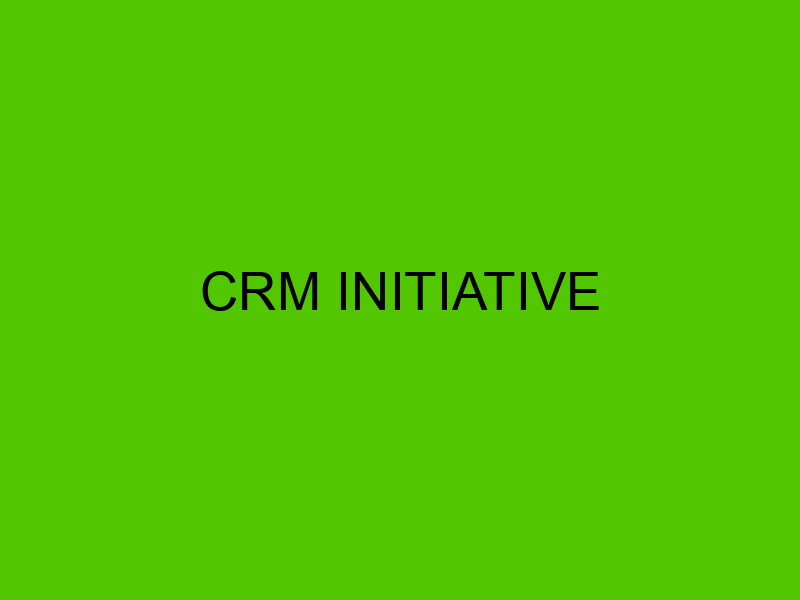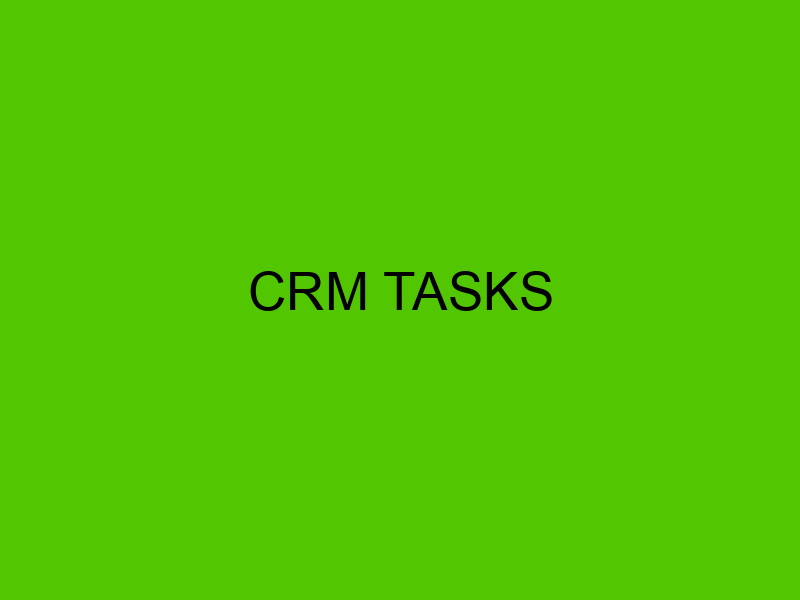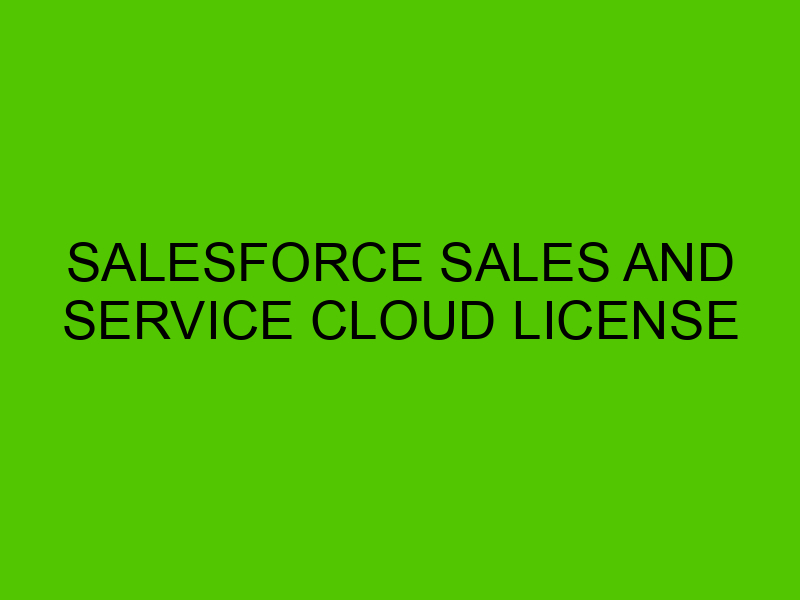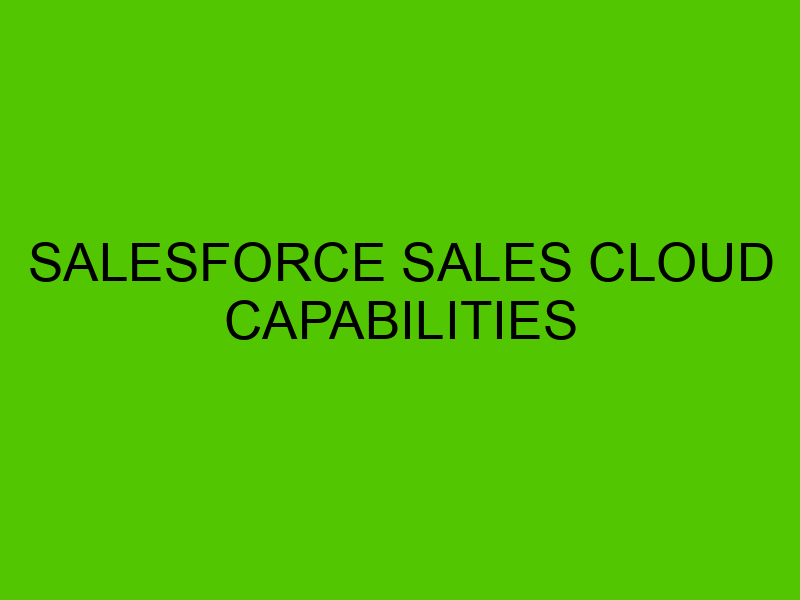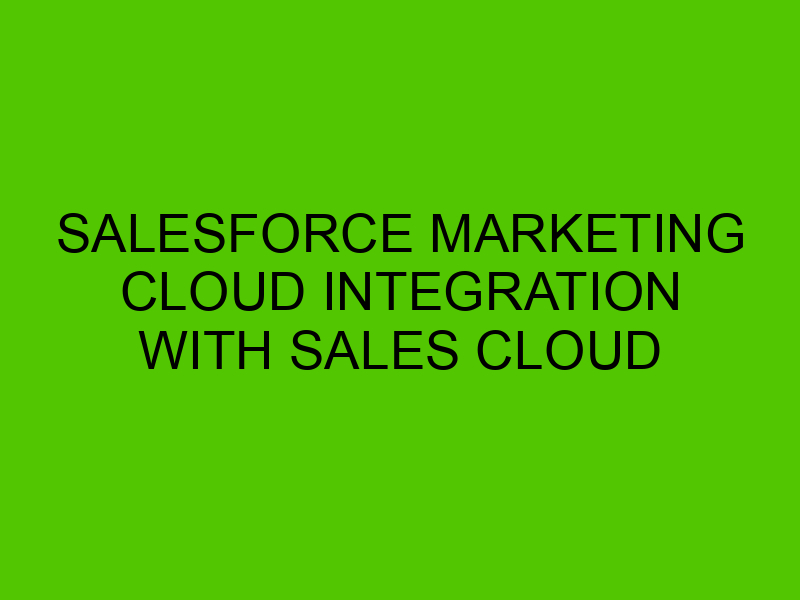Private Equity CRM Software
Private Equity CRM Software: Streamlining Investor Management for PE Firms
Introduction: What is Private Equity CRM Software?
Private equity CRM software is a powerful tool designed to help private equity firms manage their contacts, investments and overall business operations. By automating tasks and streamlining workflows, CRM software can help private equity firms reduce costs and improve efficiency throughout the investment lifecycle.
At its core, a private equity CRM is a customer relationship management tool that enables firms to manage their interactions with investors and potential investors. By tracking communication histories, profiling investor needs and preferences, and identifying leads, firms can enhance their relationships with investors and maintain a competitive edge.
Beyond investor management, private equity CRM software can help firms manage their portfolios, identify new investment opportunities, and monitor deal activity. By tracking key metrics such as investment returns, deal flow and deal pipelines, firms can make more informed investment decisions and manage risk more effectively.
Features of Private Equity CRM Software
Private equity CRM software typically includes a range of features and tools aimed at enhancing end-to-end business processes. Some of the key features of private equity CRM software include:
Deal management
One of the most important features of private equity CRM software is the ability to manage deals efficiently. This requires the software to have tools for tracking deal pipelines, managing due diligence processes, and monitoring internal processes such as deal memos and approvals. By automating these processes, firms can reduce the time and resources required to close deals, while achieving better outcomes by ensuring that deals are properly vetted and approved.
Investor management
Investor management is another key facet of private equity CRM software. The software should allow firms to track investor data, such as investment preferences, investment history, and communication histories. By maintaining a 360-degree view of the investor, firms can provide better service, increase engagement, and improve the overall investor experience.
Portfolio management
Private equity CRM software should provide firm-wide visibility and control of the portfolio. Features such as comprehensive portfolio analytics, fund performance monitoring, and investment dashboards are essential to enable private equity firms to track and analyze investment performance metrics, make informed decisions, and identify investment opportunities.
Reporting and analytics
To enhance decision-making and drive business growth, private equity CRM software must also offer robust reporting and analytics capabilities. The software should provide real-time information and insights into key metrics, such as deal performance, pipeline analysis, and investor engagement. This data empowers firms to make data-driven decisions that drive investment performance and optimize operational efficiency.
The Benefits of Private Equity CRM Software
The benefits of using private equity CRM software are numerous, including:
Improved investor relations
Private equity CRM software helps firms to build strong relationships with investors by providing them with the personalized service they require. By storing investor data, firms can track and analyze communication patterns, providing tailored responses to investor queries and ensuring that investors receive timely and relevant information on investments.
Enhanced team collaboration
Private equity CRM software facilitates team collaboration by providing a single source of truth for all investment-related data. This means that team members can quickly access information, collaborate on deals, and share critical insights in real-time. By breaking down silos and promoting communication across the firm, private equity CRM software helps to improve operational efficiency and business outcomes.
Better decision-making
Another key benefit of private equity CRM software is improved decision-making. By providing real-time information and performance metrics, the software allows firms to make informed investment decisions. Better decision-making leads to better investment performance and increased competitiveness in the marketplace.
Conclusion
Private equity CRM software is an essential tool for private equity firms to manage their contacts, deals, fund performance, and the overall investment lifecycle. By providing a comprehensive view of the firm’s operations, the software enables firms to make data-driven decisions, increase efficiency, and drive better business outcomes.
Benefits of Private Equity CRM Software
Private equity firms are known for making investments in various businesses, and because of this, they need a lot of information to be organized and kept in one place. This is where Private Equity CRM Software comes in handy. It provides tools that allow private equity firms to manage their investments more efficiently. Let’s take a closer look at the benefits of Private Equity CRM Software.
1. Better Management of Contacts
One of the crucial features of Private Equity CRM Software is contact management. The software helps firms to streamline their contact management process, allowing them to easily keep track of interactions with clients, investors, and other stakeholders. It allows firms to store vast volumes of customer data in one central location, making it easier for staff members to search for information quickly.
Moreover, private equity CRM software often includes a comprehensive contact management system that enables firms to automatically log all communication with clients, giving them a more detailed view of their interactions with their clients.
2. Tracking Deals More Effectively
A major benefit of Private Equity CRM Software is the ability to track deal information more effectively. Private equity firms typically deal with many different types of deals, and the software can help manage them in an organized and structured manner. It allows firms to track multiple deals in a single place, without the need to sift through tons of emails, spreadsheets, or other documents in search of essential data.
Additionally, with powerful analytics tools, private equity firms can gain insights into their strategic decisions when it comes to deals. They can monitor deal performance and make informed decisions about whether to continue investing in a particular company or to sell their stake.
3. Analyzing Fund Performance
Another essential feature of Private Equity CRM Software is its ability to track and analyze fund performance effectively. The software can help private equity firms analyze their investments’ performance against their benchmarks, allowing them to make informed decisions based on data-driven insights.
The software enables the creation of various charts and reports that illustrate asset performance and risk indicators. In addition, firms can use key performance indicators (KPIs) to keep track of metrics such as the amount of money invested, the impact of fees, returns generated, and so on. Private equity firms can use the insights from these reports to differentiate their investment approach from their competition, identify market trends, and make informed choices about new investments.
4. Improving Communication Across All Levels
Private Equity CRM Software can improve communication across all levels of the investment ecosystem. The software can create a more transparent environment for investors and stakeholders, allowing them to learn more about the fund’s performance and investment activities.
In addition, private equity CRM systems help teams to collaborate and share information more efficiently. The software provides workflow tools that enable team members to work together on tasks, share files, and communicate in real-time. This feature with the software’s data analytics capabilities, allowing communication to be more data-driven, which leads to better-informed investment decisions.
Wrap Up of Benefits of the Private Equity CRM Software
In conclusion, Private Equity CRM Software provides numerous benefits to private equity firms looking to manage their contacts, track deals, analyze fund performance, and improve communication across all levels of the investment ecosystem.
The software helps private equity firms to increase their efficiency and productivity, improving their ability to make informed investment decisions. With the ability to track and analyze their investments more effectively, firms can gain a competitive edge in the industry. Ultimately, by streamlining communication and improving collaboration, private equity firms can create more value for their investors and stakeholders.
Deal Tracking
Deal tracking is an essential feature of private equity CRM software. It helps firms to keep track of their deals and ensure that all necessary steps are followed in the deal process. Private equity firms are always managing multiple deals at a time, which can be overwhelming without the right tools. With deal tracking, firms can easily view the status of each deal, who is involved in the deal, and what needs to be done next. This feature helps companies to prioritize and manage their deals effectively.
Private equity CRM software helps firms to keep track of their interactions with clients and potential investors. It provides a complete view of their past and current deals, including the stages they are in and the progress made. With this information, firms can easily determine which deals are worth pursuing and which ones are not. Deal tracking feature helps private equity firms to keep track of their activities, analyze their successes and failures, and make more informed decisions in the future.
Pipeline Management
Pipeline management is another crucial feature of private equity CRM software. It enables firms to visualize and manage their deal pipeline effectively. Private equity firms typically have complex and lengthy deal processes that involve multiple stages. With pipeline management, firms can monitor each stage of the deal, identify potential bottlenecks, and take measures to prevent delays.
Private equity CRM software also allows firms to customize their pipeline to match their specific deal process. This customization ensures that the software is tailored to the firm’s unique needs, making the deal process more efficient and effective. Pipeline management is essential for private equity firms as it helps to streamline their deal management process, reduce errors, and improve collaboration among team members.
Fund Reporting and Analytics
Private equity CRM software provides fund reporting and analytics features that help firms to keep track of their portfolio performance. These features allow firms to measure the success of their investments, identify portfolio trends, and make data-driven decisions related to fund management.
The fund reporting feature of private equity CRM software helps firms to generate reports that provide a comprehensive view of their investments. These reports include details such as investment activity, portfolio performance, and financial analysis. With fund reporting, firms can easily analyze their performance and make informed decisions on their portfolio strategy.
The analytics feature of private equity CRM software provides firms with insights into their portfolio trends. It enables firms to track performance indicators such as ROI, revenue growth, and market share. With these insights, firms can easily identify opportunities and risks in their portfolio and take appropriate action. Fund reporting and analytics features help private equity firms to make more informed decisions and achieve better investment returns.
The Top Private Equity CRM Software Providers
Private equity firms require a specialized type of customer relationship management software to effectively manage investor relations, portfolio companies, and deals. Fortunately, there are many private equity CRM software providers in the market, each with their own set of unique features and capabilities. Here are some of the industry’s top providers:
1. DealCloud
DealCloud offers a comprehensive solution that helps private equity firms manage their entire deal lifecycle. Its features include pipeline management, deal execution tools, advanced analytics, and investor relations management. The software is highly customizable and can be tailored to fit the unique needs of each firm. DealCloud also offers a mobile app for on-the-go access to critical information.
2. Altvia
Altvia offers a CRM solution specifically designed for private equity firms. Its features include deal tracking, portfolio management, fundraising management, and investor relations management. The software is highly configurable and can be tailored to fit the unique needs of each firm. Additionally, Altvia offers integrations with other popular tools like Outlook and Excel.
3. Dynamo Software
Dynamo Software offers a CRM solution specifically designed for the alternative asset management industry. Its features include investor relations management, deal pipeline management, portfolio management, and fundraising management. The software is highly customizable and includes automated reporting capabilities. Dynamo Software also offers integrations with popular software like Outlook, Excel, and Salesforce.
4. Satuit Technologies
Satuit Technologies provides CRM solutions for the asset management industry, including private equity firms. Its features include investor relations management, contact management, email marketing automation, and deal flow management. The software is highly customizable and includes automated reporting capabilities. Additionally, Satuit Technologies offers integrations with popular software like Outlook, Excel, and Salesforce.
These are just a few of the top private equity CRM software providers in the market. When choosing a provider, it is important to consider factors such as ease of use, customization options, integrations, and pricing. By finding the right CRM software, private equity firms can better manage their investor relations, deal flow, and portfolio companies, ultimately leading to greater success and profitability.
Choosing the Right Private Equity CRM Software
Private equity firms face unique challenges when it comes to customer relationship management (CRM). Unlike traditional businesses, private equity firms need to maintain relationships with numerous stakeholders, including investors, portfolio companies, and the broader investment community. As a result, private equity firms require CRM software that is highly customized and can meet their specific needs.
When selecting private equity CRM software, firms should consider several factors. These include:
Integration Capabilities
One of the most critical factors to consider when selecting private equity CRM software is integration capabilities. Private equity firms need to work with many different systems, including financial management software, investor relations management software, and portfolio management tools. CRM software must be compatible with these various systems and integrate seamlessly with them. This will ensure consistency in data collection, data accuracy, and streamlined internal communication.
Customization Options
Private equity firms have unique needs when it comes to CRM. Therefore, the CRM software must be highly customizable to meet these needs. Customization options should include the ability to create multiple dashboards, the ability to track different types of data, such as fund performance, and the ability to create custom reports. The software must also allow for easy customization of screens and fields.
User-Friendliness
The CRM software should be easy to use and navigate. It’s essential to ensure that the user interface is intuitive and that the software doesn’t require extensive training. The software should be able to provide quick and easy access to the data required by different users, and workflows should be optimized for efficiency and productivity.
Technical Support
CRM is a critical tool, and downtime can be costly. Therefore, it’s essential to ensure that the CRM software has robust technical support. The software provider should offer prompt and reliable support that is available 24/7. You should also consider the software provider’s training and onboarding. The software provider must have knowledgeable support professionals and extensive resources to help firms set up the software correctly.
Experience in the Private Equity Industry
Lastly, it’s crucial to select a CRM provider that understands the unique needs of private equity firms. The software provider should have a deep understanding of the private equity industry. They must have experience working with other private equity firms and know the nuances of fund management, investor relations, and deal sourcing. The provider should be able to demonstrate an in-depth knowledge of the private equity industry and have a proven track record of delivering software solutions specific to the private equity business.
In conclusion, private equity firms must choose the right CRM software that meets their unique needs. When choosing a provider, consider the software’s integration capabilities, customization options, user-friendliness, technical support, and experience in the private equity industry. Investing in the right CRM software will improve the efficiency, productivity, and profitability of the firm.
Customization capabilities
One important feature that private equity CRM software offers is customization capabilities. Private equity firms are not cookie-cutter operations and they require a system that reflects their unique processes, investment strategies, and workflows. Customization allows private equity firms to tailor their CRM software to match their specific needs.
With customizable data fields, screens, and workflows, private equity firms can ensure that their data is structured in a way that makes sense for their organization. This can also allow for easier data mining and analytics which can further improve decision-making. Customization capabilities also allow for the integration of third-party applications such as portfolio management or financial reporting tools.
Another important aspect of customization is data security. Private equity firms handle sensitive data which must be safeguarded at all times. Customization can ensure that the software is configured to comply with the strictest data security protocols. This can include role-based access, data encryption, and other security features.
In summary, customization capabilities are essential to a private equity CRM software as it allows firms to tailor their system to match their unique needs, and improves data security.
Integration with other applications
Private equity firms use a variety of software to manage their investments and operations including financial reporting tools, portfolio management systems, and document management platforms. Integrating these tools with CRM software can create a more streamlined and efficient workflow.
Integration can reduce data entry redundancies and create a more holistic view of investment performance. By integrating with a portfolio management system, firms can track investment activity and fund performance in real-time. This can allow investors to have better visibility into the progress of their investments.
Integrating with financial reporting and document management tools can also improve operational efficiency. CRM software can automatically pull data from these systems to create reports, reducing the need for manual data entry. Document management integration can also improve collaboration within the firm by providing access to important documents and records from one place.
In summary, integration with other applications can improve operational efficiency and provide investors with more visibility into their investments.
Analytics and reporting
Analytics and reporting are vital to measuring investment performance and decision-making. Private equity CRM software offers a variety of features that enable firms to extract insights from their data and generate reports.
One important feature is the ability to create custom reports. Customizable reporting allows for the creation of bespoke reports and dashboards specific to an investor or fund. This can enable firm personnel to track key metrics, evaluate performance, and identify problematic areas. Additionally, some software providers offer built-in advanced analytics and reporting modules that provide more in-depth analytics, such as performance attribution, and risk management.
CRM software can also contribute to better decision-making by providing a single source of truth for data. With real-time updates, investors can easily view the status of their investments and track performance over time. With this information, they can make informed decisions and identify new investment opportunities.
In summary, analytics and reporting features are essential to measuring investment performance, identifying investment opportunities, and improving decision-making.
Mobile accessibility
Mobile accessibility is critical to private equity firms as they are often on the move. Private equity CRM software with a mobile app enables investors to access their data on the go and respond to time-sensitive matters from anywhere in the world.
Accessible data on mobile devices can also provide investors greater convenience and flexibility as they can view and respond to investment opportunities outside of the office. This can lead to quicker decision-making and improved deal flow.
Mobile accessibility can also improve communication and collaboration among investment teams. An app allows for easy communication and collaboration, so team members can access critical information and stay in touch even when they are on the move.
In summary, mobile accessibility features are essential for private equity firms as they empower investors to access real-time information to make quick decisions and improve communication and collaboration among teams.
User-friendly interface
User-friendly interfaces can improve the adoption and use of CRM software within private equity firms. These interfaces are essential for encouraging widespread user adoption, particularly among stakeholders like investors and investment managers who aren’t as tech-savvy.
A user-friendly interface can reduce training requirements and increase productivity by making routine tasks easier to perform. The interface must be easy to navigate, intuitive, and with an information architecture that is clear and concise. The ability to customize the interface to match a user’s preferences can also improve overall satisfaction and productivity.
In summary, user-friendly interfaces can improve the adoption and daily use of CRM software within private equity firms.
Flexible pricing models
Flexible pricing models enable private equity firms to only pay for the features they need. These models allow firms to scale up or down as their needs change, and for smaller firms with limited budgets to access some of the best private equity software without overpaying.
Typically, pricing models are based on the number of users, customizations required, data storage requirements, and integrations needed. The best software providers offer flexible models that are easily modified as required.
In summary, a flexible pricing model allows firms to scale up or down as their needs change and for smaller firms to access the best private equity software without overpaying for features they don’t need.
In conclusion, private equity CRM software can contribute to better investment management, improved communication, and streamlined processes. The right software provider and features can contribute to increased efficiency and performance while better data structures, analytics, reporting, mobile access, user-friendly interfaces, and flexible pricing models provide a superior user experience. Investing in quality private equity CRM software can deliver a significant ROI for firms and improve their short and long-term performance.



